
One of the oldest and most precious artefacts in the collection at Chequers, the prime minister’s country residence, is also among its smallest. It’s a tiny, exquisitely crafted ring, fashioned from mother-of-pearl and embossed with rubies and diamonds (see opposite), which opens to reveal two portraits. One depicts Elizabeth I; the other is thought to be of her mother, Anne Boleyn, the most famous – and controversial – of Henry VIII’s six wives. When closed, the two portraits almost touch, face to face, mother to daughter.
Elizabeth’s love of expensive and elaborate jewellery was well known, yet her most cherished possession was this comparatively simple piece, which she kept with her until the day she died. It is a poignant symbol of the private reverence with which she held her late mother throughout her long life.
Anne Boleyn and Elizabeth I were two of the most famous women in British history, their stories as familiar as they are compelling. We all know of Henry VIII’s obsessive love for Anne, turning to bitter disappointment when she failed to give him a son, and her bloody death on the scaffold three years after being crowned queen. And we recall Elizabeth’s turbulent path to the throne, followed by her long and glorious reign – a ‘Golden Age’ of overseas adventurers, Shakespeare and Spenser, royal favourites and the vanquishing of the Armada, all presided over by the self-styled Virgin Queen.
This story is from the {{IssueName}} edition of {{MagazineName}}.
Start your 7-day Magzter GOLD free trial to access thousands of curated premium stories, and 9,000+ magazines and newspapers.
Already a subscriber ? Sign In
This story is from the {{IssueName}} edition of {{MagazineName}}.
Start your 7-day Magzter GOLD free trial to access thousands of curated premium stories, and 9,000+ magazines and newspapers.
Already a subscriber? Sign In

Viking mussels
ELEANOR BARNETT digs into archaeological research to recreate a Viking-cum-AngloSaxon seafood dish from medieval York
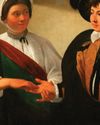
Fingers, frog's and fairies
Fortune telling was all the rage in the 16th and 17th centuries, and practitioners would stop at nothing to tap in to the supernatural. Martha McGill tells a story of Highland seers, tarot cards and encounters with the spirit world

Nothing matches being with Alexander the Great on foot in the Hindu Kush
AT OUR LITTLE FILM COMPANY, MAYA VISION, we recently took the decision to digitise all of the rushes of our key films so that we could dispose of hundreds of boxes of tapes that had been kept in storage, throwing out stuff we thought we would never need again.

Library of the dead
Highgate Cemetery, created as a fashionable resting place for wealthy Victorian dead, is a veritable who's who of London's great and good. PETER ROSS roams the avenues of this most atmospheric necropolis
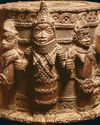
Slavery, exploitation and racism. These tragedies have long dominated histories of Africa. But there's another way to tell this story. And it's one that puts Africans right at the centre of their continent's extraordinarily rich and vibrant past
An 1414, in the Chinese city of Nanjing, a giraffe caused a stir. Amid a crowd of shocked, noble spectators, an official, leading the creature via a rope tied round its face, presented it to China's Yongle emperor. His officials said it was a qilin - an auspicious unicorn - which his sage governance had made appear.
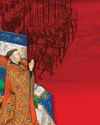
England's forgotten hero
When the Hundred Years' War was reaching a climax, one man was fighting tenaciously to secure the English claim to the French crown. So why, asks Joanna Arman, is Henry V's formidable brother, John, Duke of Bedford, not better known?
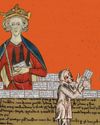
HENRY III AND THE MAGNA CARTA THAT MATTERED
King John's sealing of a charter at Runnymede in 1215 is one of the most feted moments of the Middle Ages. Yet, writes David Carpenter, it was the charter issued by his son 10 years later that became fundamental to England's history
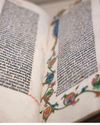
Gutenberg publishes a pioneering new book
‘The printing press triggers an information revolution
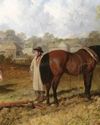
How empire ruptured rural Britain
We know that enslaved Africans and their descendants suffered in the distant colonies of empire. But, as Corinne Fowler explains, the colonial system also had dire impacts on people in the countryside of the 'motherland'
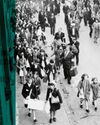
"I FELT VERY ALONE IN A WORLD GONE HORRIBLY MAD"
It was a moment of possibilities, dislocation and dread. Dan Todman tells the story of the 1.5 million urban Britons evacuated to the countryside at the start of the Second World War